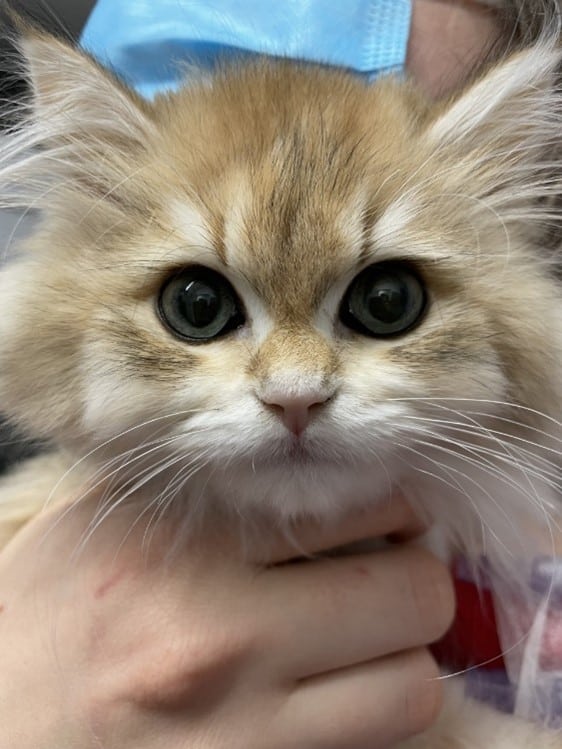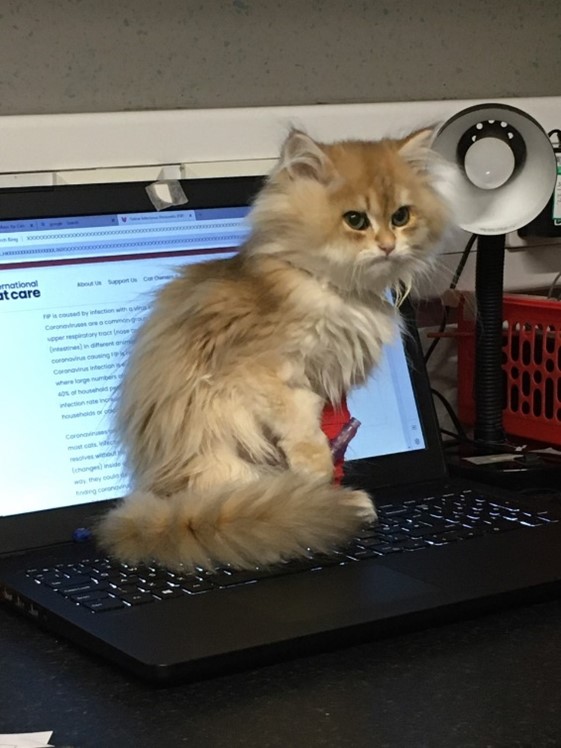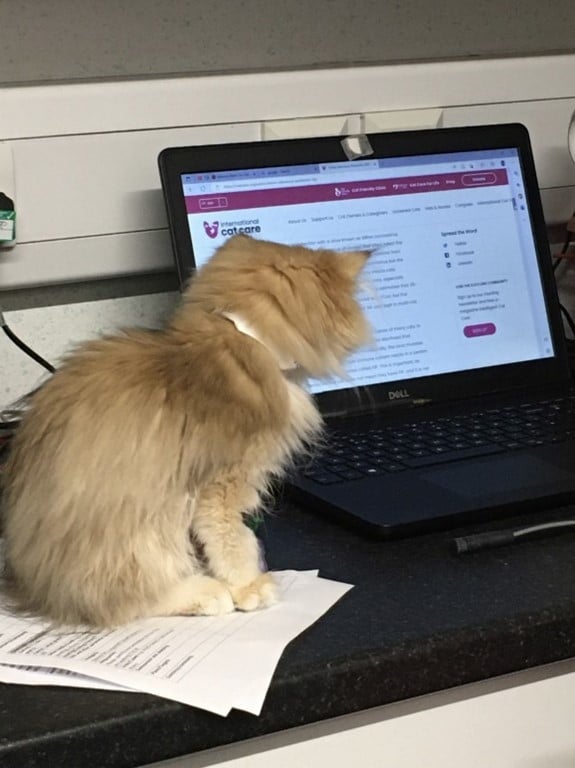Zeus’ curious journey
Zeus, a sweet 4-month-old kitten was bright and playful until mid-December 2022 when his owners noticed he had a reduced appetite and lethargy. He then developed a fever and was treated by his local vet with pain relief and antibiotics. The fever improved slightly but he remained lethargic and blood tests showed significantly reduced red blood cell count (anaemia), so he was referred to us.

He came into see our Internal Medicine team, who found he was slightly small for his age and generally quiet for such a young kitten. His gums were also slightly yellow tinged and he had a ‘doughy’ abdomen (that is often suggestive of fluid inside the abdomen) and an elevated body temperature (39.8C).
Zeus’ blood tests confirmed the anaemia (the reduced red blood cell count) as well as elevated bilirubin (a yellow pigment formed in the liver). He had radiographs of his chest and an ultrasound of his abdomen that identified enlarged lymph glands and free abdominal fluid. The fluid was yellow and viscous with an increased number of white blood cells (neutrophils).
Catarina Amorim, one of our Residents in Small Animal Internal Medicine performed a fine needle aspirate to aspirate (draw liquid/cells) the fluid from the lymph glands. The aspirates showed evidence of ‘pyogranulomatous inflammation’, a pattern of inflammation commonly seen in suspected cases of FIP (Feline Infectious Peritonitis).

The results of all of these tests as well as Zeus’ clinical signs were really suspicious of FIP. Currently, a definite diagnosis of FIP is a challenge as the only true way to confirm it is to detect the viral antigen associated with macrophages within lesions using immunohistochemistry. However, if the cat’s history and presenting clinical signs are consistent with FIP then there is a significant chance that the cat has FIP. Up until recently, FIP was considered a fatal disease with a poor prognosis.
However, in August 2021, an antiviral medicine (remdesivir) became legally available in the UK for vets in the treatment of FIP in cats. Since then many cats and kittens have been treated and are still being treated successfully. Remdesivir and GS-441524 have now been approved for the treatment of FIP in cats and treatment options now include a 12-week course of injectable remdesivir, transition from injectable remdesivir to oral GS-441524, or an entirely oral GS-441524 protocol.

Zeus started treatment with remdesivir intravenously and remained in hospital with us for a week, with the dedicated nursing team administering his injectable treatment and monitoring him day and night. Within a day of starting the treatment his temperature normalised. Zeus then became progressively brighter and more playful and was discharged home to continue treatment with oral tablets. He is currently doing very well, and we are so pleased that he is improving every day!
For more information on FIP please visit
Feline Infectious Peritonitis (FIP) | International Cat Care (icatcare.org)
